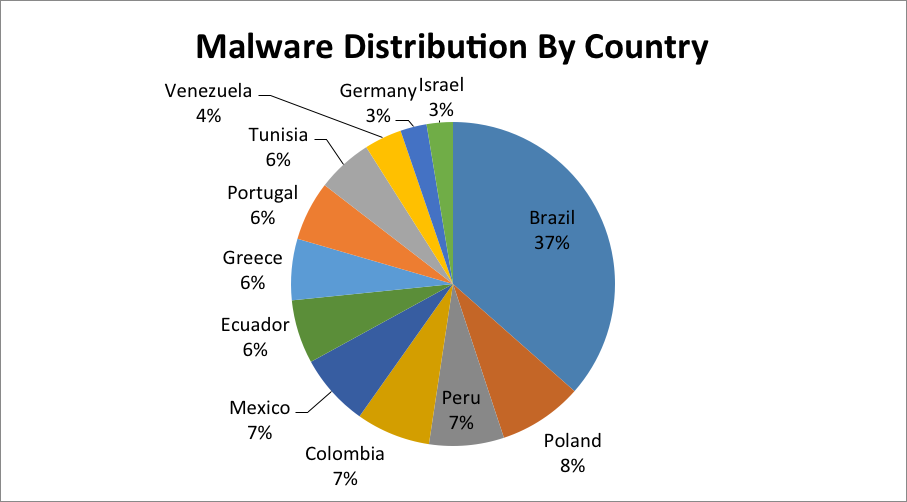IT security firm detects malware attack targeting Facebook users

Countries in the Western Hemisphere, especially Brazil, were hit hardest by a malware attack targeting Facebook users.
A malicious software or malware attack that targets Facebook users and their account has been uncovered by international software security firm Kaspersky.
Kaspersky Lab reported that around 10,000 Facebook users from countries including Brazil, Poland, Peru, Colombia, Mexico, Ecuador, Greece, Portugal, Tunisia, Venezuela, Germany and Israel were most affected by the malware that disguised itself as a message from a victim’s Facebook friend claiming to have mentioned them in a comment.
“Two aspects of this attack stand out. Firstly, the delivery of the malware was extremely efficient, reaching thousands of users in only 48 hours,” Ido Naor, senior security researcher of Kaspersky Lab’s global research and analysis team, said in a press statement on Friday.
“Secondly, the response from consumers and the media was almost as fast,” he added.
Kaspersky said the Facebook malware attack occurred in two stages. The first installed a Trojan virus into the user’s computer which downloaded a malicious browser extension, which then enabled the virus to take over the victim’s Facebook account.
Kaspersky also noted that Windows-based computers were at greatest risk, while Android and iOS mobile devices were immune from the attack.
Once the malware has control of the victim’s account, it is free to change privacy settings, extract a victim’s data, and spread itself further through the victim’s Facebook friends.
The attack occurred from June 24 to 27 as already compromised devices spread the malware further through a victim’s own Facebook friends, said Kaspersky.

Beware of suspicious notifications and messages from your Facebook friends—it just might be malware.
As one of the most active countries on Facebook and other social media platforms, the Philippines is also susceptible to this new malware attack.
According to statista.com, despite slow internet speeds, the Philippines ranks first on daily social media usage worldwide with over 40 million Filipinos accessing Facebook and other social media websites in 2015. The number of Filipinos going online is also expected to rise over 42 million over the course of 2016.
Apart from threats coming in through social media sites, the Philippines’ over 119 million mobile phone subscribers also place the country at risk from even more malware attacks.
READ: PH 7th most vulnerable to mobile malware attacks–security firm
Naor added that this type of attack was not new and a similar case was reported about a year ago, making use of a similar infection process. In both cases, the malware appears to have originated from Turkish sources.
Facebook and Google have also acted to mitigate further spread of the malware by blocking infection attempts and removing one of the infectious extensions from the Chrome Web Store.
Kaspersky advised users to run malware scans on their computers or open their Chrome browser and look for unexpected extensions in case of suspected infections.
If the malware is detected, users should log out of their Facebook account, close their browsers, disconnect the network cable from their computers, and get a professional to check for and remove the malware.
Kaspersky also warned users to avoid clicking suspicious links or unexpected messages from their Facebook friends to avoid being infected by the malware. Kurt Lozano